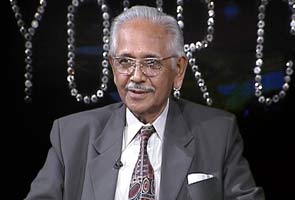The judgment in Kesavananda Bharati v State of Kerala, whose 40th anniversary falls today, was crucial in upholding the supremacy of the Constitution and preventing authoritarian rule by a single party
Justice Jagdish Sharan Verma was the architect of a report that became instrumental in shaping a new, stronger anti-rape law in the country.
Has public interest litigation lost its direction and abandoned its original constituency, the marginalised and the underprivileged sections of society?
Increasing workload, a higher rate of admission, and constitution of multiple two-judge Division Benches have resulted in a huge increase in the number of judgments handed down by the Supreme Court, which again increases the probability of inconsistencies in judgments.
Criteria that were never conceived in the Constituent Assembly now determine who gets to sit on India’s apex court. Each of these unwritten qualifications, age, seniority, and diversity, is problematic in its present form. By ABHINAV CHANDRACHUD Frontline May 3 2013
- 1
- 2
- 3
- 4
- 5
- 6
- 7
- 8
- 9
- 10
- 11
- 12
- 13
- 14
- 15
- 16
- 17
- 18
- 19
- 20
- 21
- 22
- 23
- 24
- 25
- 26
- 27
- 28
- 29
- 30
- 31
- 32
- 33
- 34
- 35
- 36
- 37
- 38
- 39
- 40
- 41
- 42
- 43
- 44
- 45
- 46
- 47
- 48
- 49
- 50
- 51
- 52
- 53
- 54
- 55
- 56
- 57
- 58
- 59
- 60
- 61
- 62
- 63
- 64
- 65
- 66
- 67
- 68
- 69
- 70
- 71
- 72
- 73
- 74
- 75
- 76
- 77
- 78
- 79
- 80
- 81
- 82
- 83
- 84
- 85
- 86
- 87
- 88
- 89
- 90
- 91
- 92
- 93
- 94
- 95
- 96
- 97
- 98
- 99
- 100
- 101
- 102
- 103
- 104
- 105
- 106
- 107
- 108
- 109
- 110
- 111
- 112
- 113
- 114
- 115
- 116
- 117
- 118
- 119
- 120
- 121
- 122
- 123
- 124
- 125
- 126
- 127
- 128
- 129
- 130
- 131
- 132
- 133
- 134
- 135
- 136
- 137
- 138
- 139
- 140
- 141
- 142
- 143
- 144


